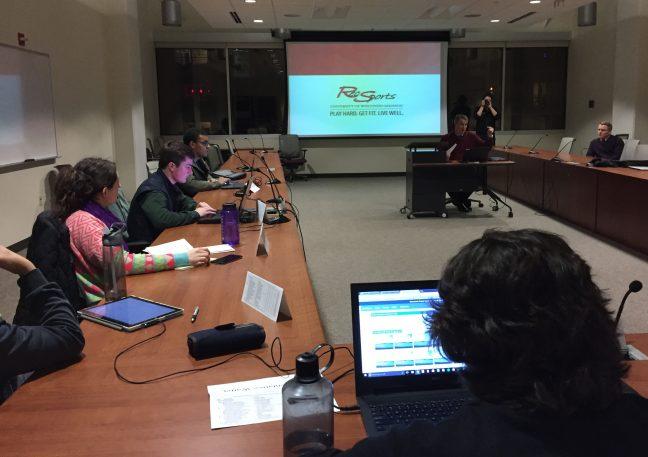To improve staffing and maintenance, Recreational Sports proposed a $5 increase in segregated fees at the University of Wisconsin Associated Students of Madison Student Services Finance Committee meeting Monday.
John Horn, director of Rec Sports, said the increase would be used for a one-time expense for staffing, custodial services, maintenance, equipment and furniture for the 2018 fiscal year.
Compared to the $171.94 average segregated fees of Big Ten universities, UW’s current $57.55 segregated fees ranked 10th in lowest spending.
Of Rec Sports’ total $7 million budget revenue, $4.8 million came from segregated fees.
SERF will accomplish its own new year resolutions with revamped facility
As Rec Sports is the third-largest student employer on campus, Horn said the increase in segregated fees would ultimately benefit student-employees.
“Typically, a third of the segregated fees over the last several years have gone directly into student employees’ wages,” Horn said.
The increase resulted from Horn’s concerns about rising costs of construction, staff expansion and an increasing need to aid LBGTQ+ students and students with mental health concerns.
Rec Sports renovation plans will make SERF look less like ‘a dungeon’
Horn said Rec Sports have referred students with mental illness to University Health Services and plan to build gender-neutral locker and changing rooms for LGBTQ+ students.
“We have to make sure we accommodate those trends,” Horn said.
The meeting also approved a total of $16 million for UHS’s 2018 budget proposal — an 8 percent increase from the previous year.
Student finance committee discusses expanding amenities, staffing at UHS
SSFC Chair Colin Barushok said the budget would shorten the mental health counseling wait time and increase the number of mental health staff.
“We’re very proud of the project,” Barushok said.
SSFC is going to a take a tour of the Southeast Recreational Facility at their Thursday meeting. Afterward, the committee will make a decision on Rec Sports’ proposal next Monday.
Barushok said the $5 increase was unexpected, and the committee would definitely fully examine it before making any decisions.
“I highly doubt that the committee will choose to approve a higher increase,” Barushok said.













